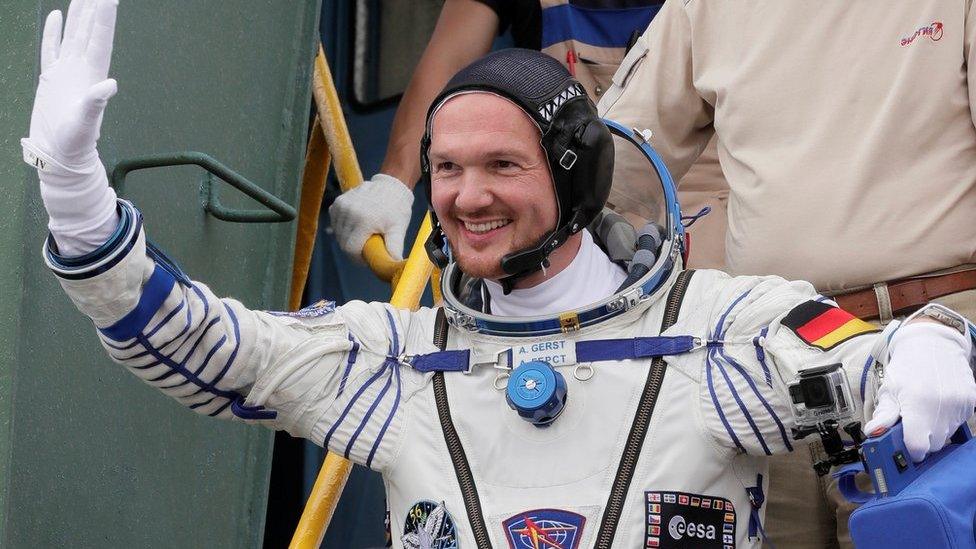Soyuz rocket: First crewed launch since failure docks at ISS
- Published
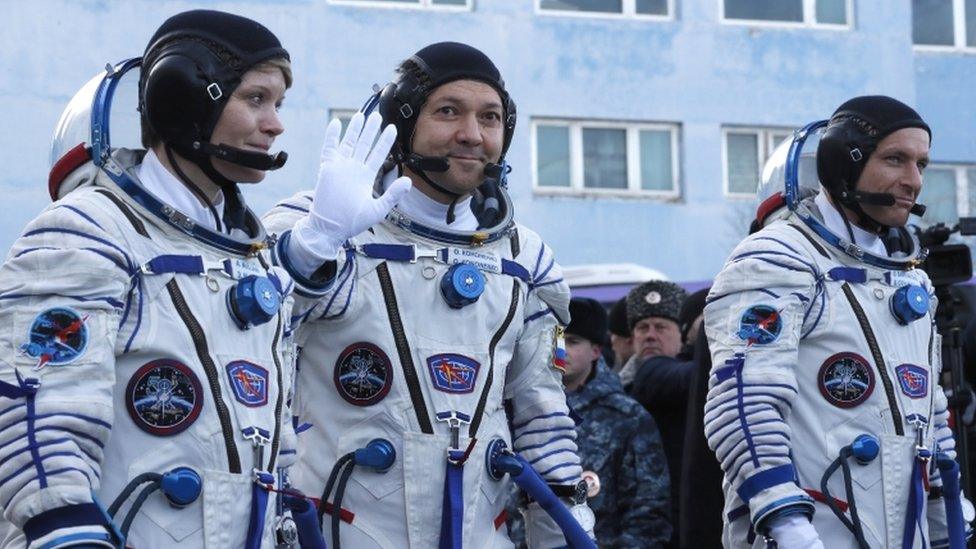
The team will spend six-and-a-half months on the International Space Station (ISS)
Three astronauts have docked at the International Space Station, on the first crewed Soyuz rocket launch since a dramatic failure in October.
Astronauts from Russia, the US and Canada left from Kazakhstan on their mission at 17:30 (11:30 GMT).
Russian space agency Roscomos then confirmed their successful docking at the station on Twitter.
October's aborted trip saw two astronauts forced to make an emergency landing just minutes after take-off.
Investigators blamed a faulty sensor which they said had been damaged during assembly at the Kazakh site.
Tweets in Russian and English showed the spacecraft docking at the ISS successfully.
Allow X content?
This article contains content provided by X. We ask for your permission before anything is loaded, as they may be using cookies and other technologies. You may want to read X’s cookie policy, external and privacy policy, external before accepting. To view this content choose ‘accept and continue’.

Speaking before the trip on Sunday, crew commander Oleg Kononenko affirmed his crew "absolutely" trusted the flight's preparation.
"Risk is part of our profession," the 54-year-old said at a press conference.
"We are psychologically and technically prepared for blast-off and any situation which, God forbid, may occur on board."
A rehearsal unmanned flight, which delivered cargo including food and fuel supplies, was successfully carried out in mid-November.
The booster failure became apparent about 90 seconds into the October flight
The three-person crew's mission was originally scheduled for later this month, but officials brought it forward to avoid the ISS being left unmanned when its current crew return to earth.
The incident on 11 October cast a spotlight on the safety of Russia's space programme, whose fleet have suffered a number of technical failures in recent years.
Afterward, investigators said they believed other Soyuz models may have been defective, but said additional checks had been introduced.
Nasa gave reassurances about their continued co-operation with and trust in the Russian programme following the incident.

Who's on board Expedition 58?
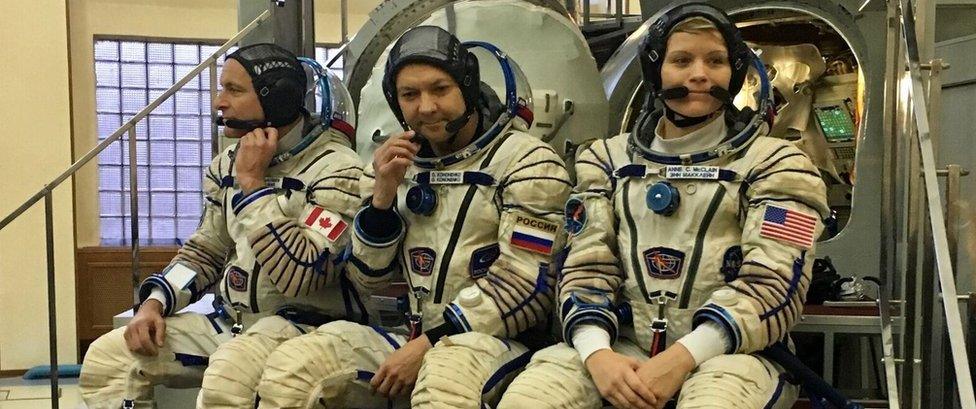
David Saint-Jacques (L), 48, Canadian engineer, astrophysicist and family doctor
Oleg Kononenko (C), 54, Russian; three space flights on ISS in 2008, 2011-12 and 2015, totalling 534 days and including three space walks
Anne McClain (R), 39, US; experienced pilot who studied as postgraduate at University of Bath and Bristol in UK

Roscosmos, the Russian space agency, is currently the only organisation transporting astronauts to the ISS after Nasa ended its space shuttle flights in 2011.
The crew who arrived at the station on Monday will spend six-and-a-half months on board the station.
Reports say a Russian Orthodox priest blessed their rocket before its flight, as is traditional.
It is the fourth visit to the ISS for Russian cosmonaut Mr Kononenko, while the trip is the first for both Anne McClain from the US and David Saint-Jacques of the Canadian Space Agency.
During their mission, members of the crew are scheduled to embark on a spacewalk to further probe a mysterious hole that caused a loss of air pressure on-board the ISS in August.
Its cause has not yet been established, but Russian officials have said they believe it was caused by a drill and may have been deliberate.
- Published5 September 2018
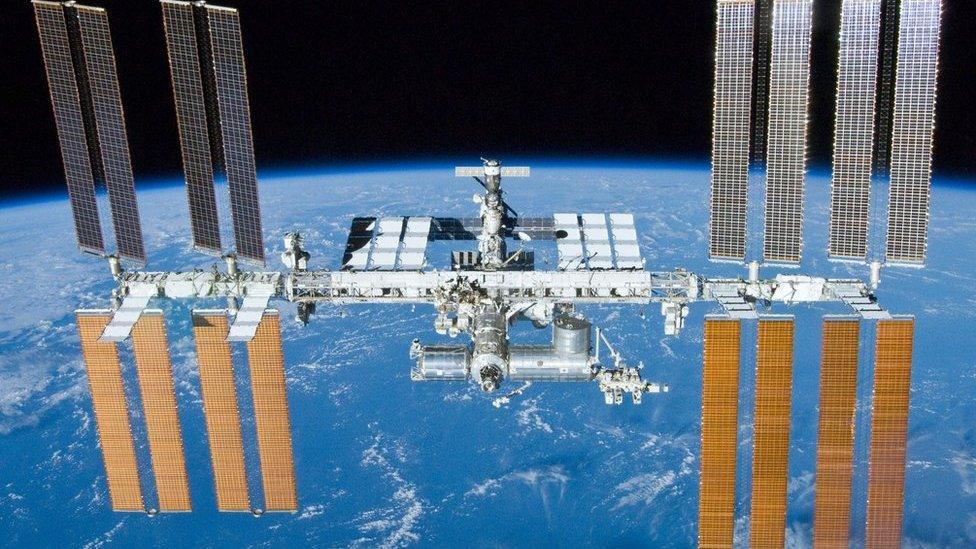
- Published3 June 2018
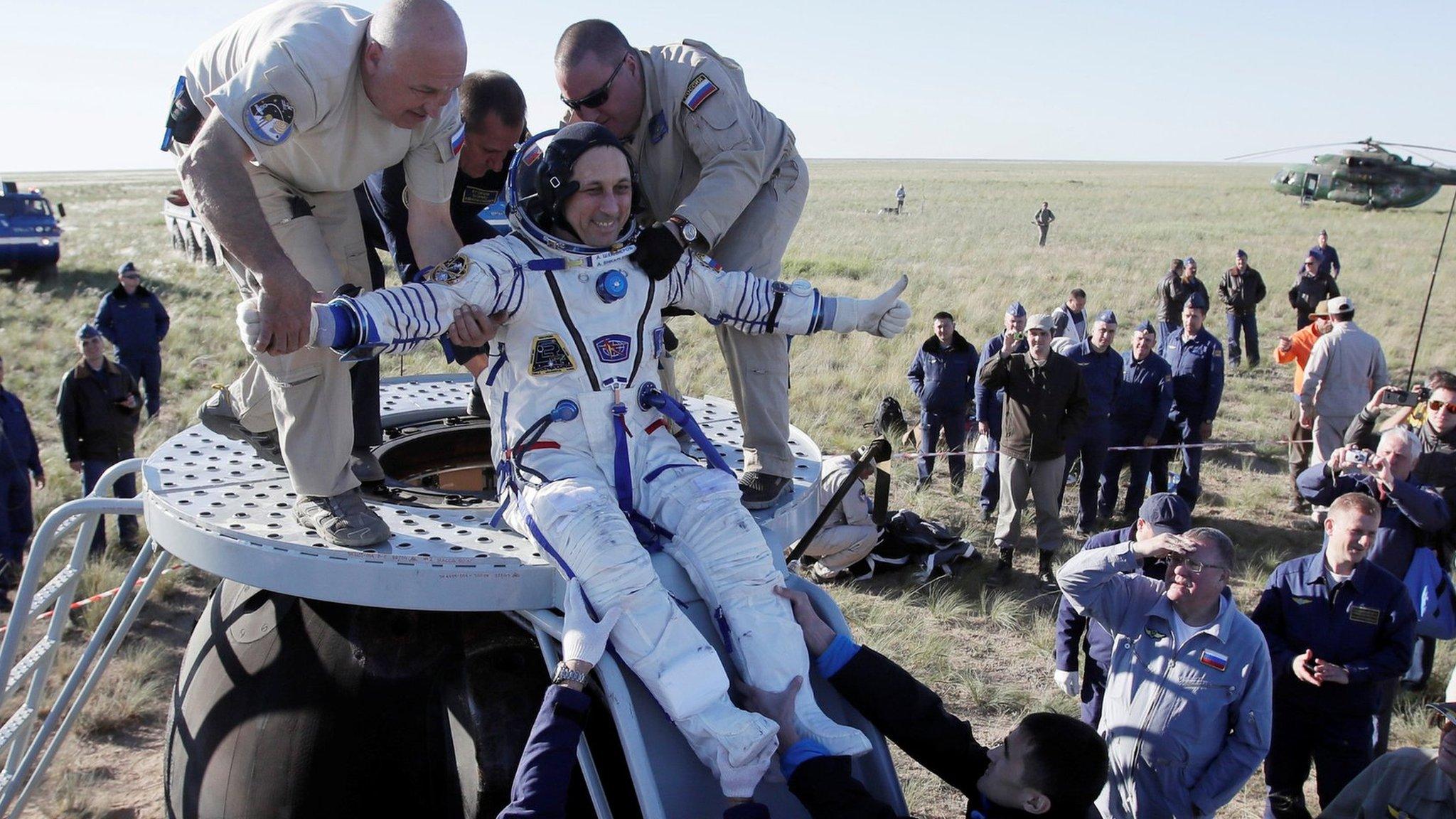
- Published6 June 2018
